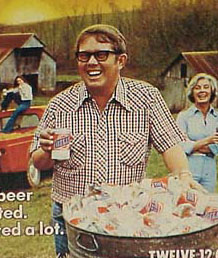"But not so happy for her father, who now admits
he alienated too many members of Congress, whom he described as "a bunch of juvenile delinquents."
He tells about some Democrats who approached him with a quid pro quo: We'll vote for your bill if you'll appoint our choice for U.S. Attorney.
"And here's what you write:
'I told them in a nice way, to go to hell,'" Stahl read. "Look at you! Almost deliberately antagonizing them."
"There were times when a Congress member would try to blackmail me, or when a Congress member would make a demand that I thought was inappropriate," Carter explained.
"And they would say it's the normal give and take of getting legislation done. But you considered it blackmail," Stahl remarked.
"In a few occasions, yes," Carter replied.
*
Carter argues that despite the image of failure, he actually had a long list of successes, starting with bringing all the hostages alive.
He normalized relations with China; brokered a peace treaty between Israel and Egypt, deregulated railroads, trucking, airlines and telephones; and his energy conservation programs resulted in a 50 percent cut in imported oil, down to just 4.3 million barrels a day.
"Unfortunately, now we're probably importing 12 million barrels a day, since part of my energy policies were abandoned," Carter told Stahl.
"
Well, and you built solar panels on the roof of the White House," Stahl remarked.
"That's right, which were ostentatiously removed as soon as Ronald Reagan became president," Carter replied, laughing.
"He wanted to show that America was a great nation. So great that we didn't have to limit the enjoyment of life."
"And the public seemed to like that better than they liked your message, which was 'We have to be limiting," Stahl said.
"That's right," Carter agreed. "America responded to that quite well."
But when all is said and done, and many will be surprised to hear this: Jimmy Carter got more of his programs passed than Reagan, Nixon, Ford, George H. W. Bush, Clinton or George W. Bush.
"I had the best batting average in Congress in recent history of any president, except Lyndon Johnson," Carter said.
"And yet, as I say, there's the sense that you were a failed president," Stahl said.
"I think I was identified as a failed president because I wasn't re-elected," he replied.
The lesson: getting a lot of legislation passed, even when it's significant, is not enough."



